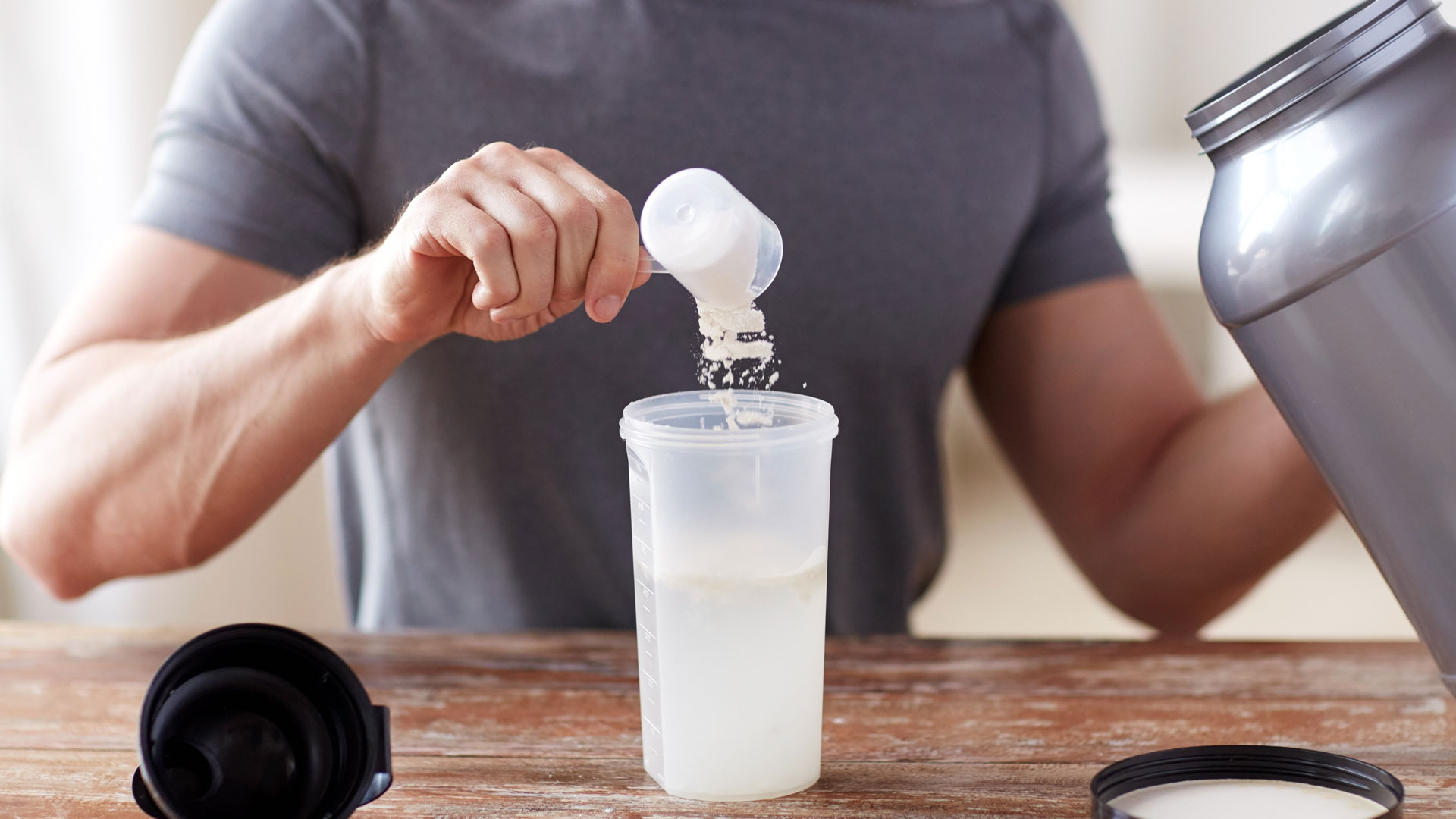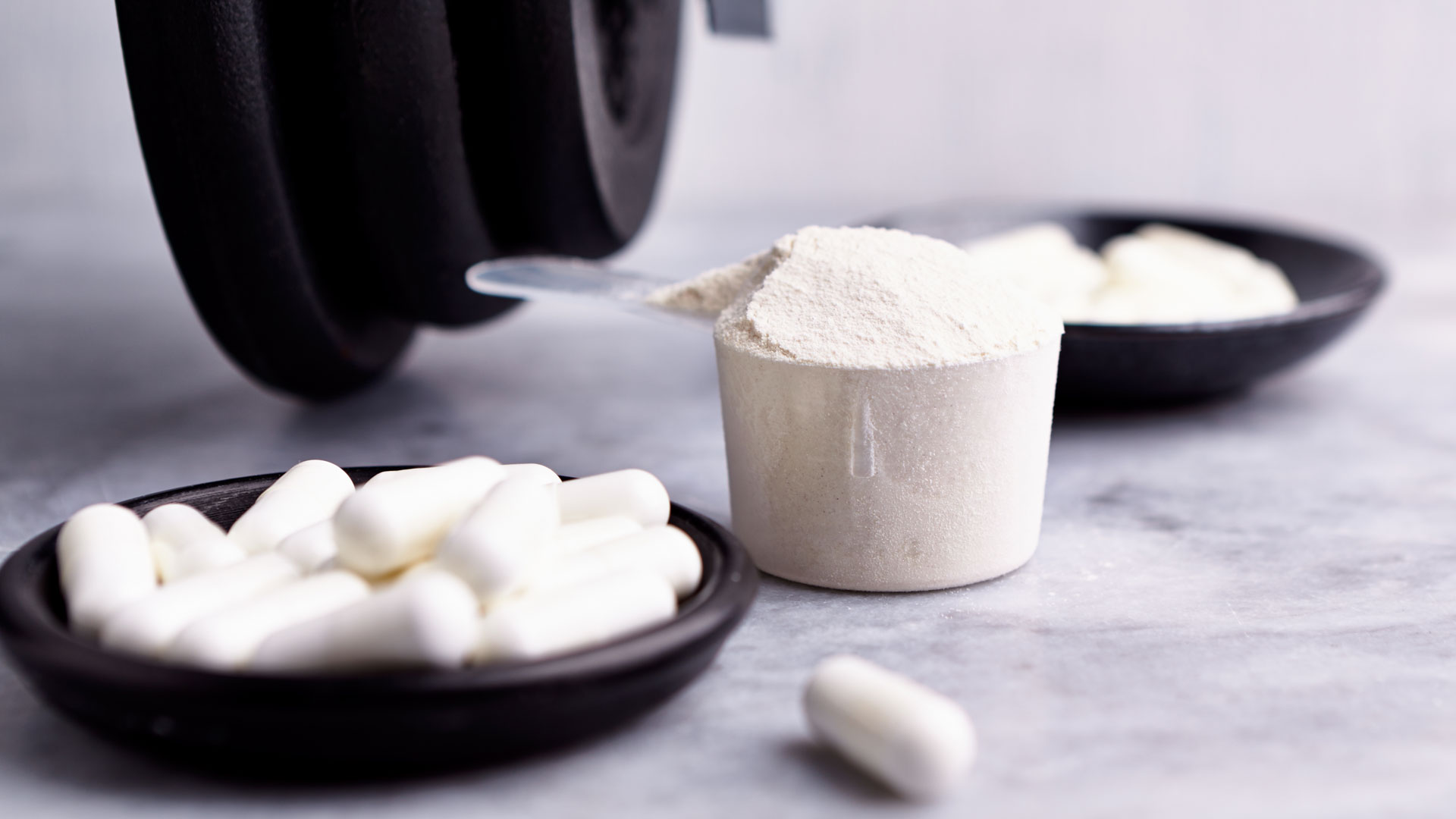Does creatine make you gain weight?
We asked fitness experts if creatine makes you gain weight, here’s what they had to say

If you’re wondering; does creatine make you gain weight, we have all the answers. Creatine is taken as a supplement by athletes or even just regular gym-goers. It’s an amino acid that’s naturally occurring in many foods and provides energy to your cells, and helps build muscle mass. It’s for this reason that some people take it as an oral supplement to enhance their athletic performance and transform their bodies.
However, there’s long been rumors in the fitness industry that taking creatine makes you gain weight, which isn’t ideal if you’re looking to transform your body. With so much uncertainty around these claims, we’ve spoken to a number of experts in the health, fitness, and nutrition industry to try and bust these myths once and for all. Read on to find out how creatine works, if you should use creatine for weight loss and if, in fact, it does make you gain weight, or if it’s just meaningless hearsay.
Looking to find more on supplements? Check out our guide to the best protein powder for weight loss.
Which foods contain creatine?
Creatine's main benefit is an improvement in power output during a workout and faster recovery. When it’s added to the diet in conjunction with resistance exercise, the substance can aid an increase in lean mass. Some people also find creatine helps them recover faster from grueling workouts.
“Creatine supplementation is effective at increasing our muscle stores of creatine which helps with the generation and maintenance of energy output,” explains Dr. Brian Carson Ph.D., co-founder and head of science and innovation at Whole Supp.
As we mentioned earlier, creatine can be found in many everyday foods, so if you don’t want to take it as a supplement, you can absorb it naturally, instead. Although vegans and vegetarians cannot benefit from it in this way, as creatine is usually found in fish, meat, and dairy products. The top 10 foods that contain naturally high levels of creatine, according to workout and nutrition app Fitbod, are:
- Herring fillet
- Beef patties
- Salmon
- Beefburger
- Pork
- Black pudding
- Cured ham
- Lamb
- Chicken breast
- Rabbit meat

Does creatine make you gain weight?
Along with increasing muscle size, it’s been said that creatine can also cause unwanted weight gain. But is this really fat?
Get the Fit&Well Newsletter
Start your week with achievable workout ideas, health tips and wellbeing advice in your inbox.
Sophie Medlin, consultant dietitian and founder of City Dietitians, told Fit&Well that while creatine may cause weight gain, this is partly due to an increase in total body water, also known as water retention.
“Creatine enters cells in our muscles via the bloodstream which may, in turn, draw in water,” she explains. “It may also support the building of muscle mass which of course, also means weight gain.
“Crucially, creatine does not cause people to gain fat which is often what is missing from conversations about weight gain.”
Medlin adds that before taking creatine supplements, it’s important to understand the type of weight gain you may experience.

What else does creatine do to the body?
While it is generally accepted that taking creatine is associated with gains in body mass, including muscle and water retention, there is evidence that it can have other positive effects on the body.
“Creatine is accepted by scientists as one of the top three supplements known to improve our strength and exercise performance. This is important for both athletes, but also for our general health as we age,” explains Dr. Carson.
As well as creatine’s impact on body composition and muscle function, Dr. Carson highlights emerging research that suggests it may also have a beneficial impact on brain health and cognitive function.
“Current research is investigating the evolving application of creatine to improve other health outcomes such as vascular and metabolic health,” he adds.
So, can taking creatine supplements regularly negatively affect your health? Most studies would suggest not, and many have reported that creatine is safe, even when taken in the long-term, despite it being suggested that liver and kidney dysfunction could occur.
A report published in the National Library of Medicine investigated liver changes during a month-long study of creatine supplementation in young athletes and found that none showed any evidence of dysfunction.
“Short term (five days), medium-term (nine weeks), and long term (up to five years) oral creatine supplementation has been studied in small cohorts of athletes whose kidney function was monitored by clearance methods…we did not find any adverse effects,” the report states.
That doesn’t mean to say that the supplement is completely free of side effects. Some people could still experience negative effects from taking creatine, although they don’t tend to be serious and could include dehydration, upset stomach, and muscle cramps.
Most professionals recommend taking doses of up to 10 grams per day when supplementing with creatine to stay on the safe side.
For more on nutrition, we answer; is protein powder good for you?
Lee Bell is a London-based journalist, copywriter, specializing in all things tech and lifestyle. He is also a qualified personal trainer. He started his journalism career a decade ago as a reporter covering the latest gadgets and innovations at tech tabloid The Inquirer. Lee went freelance in 2016 to broaden his expertise, moving into news, reviews and feature writing for a host of national print and online lifestyle titles such as GQ, Forbes, Esquire, Men’s Health, Wired, The Metro, and The Mirror. He has an insatiable appetite for travel, Dharma yoga, and the odd outdoor challenge.
-
 I do these two things every day to stay fit and healthy, says the newest star trainer on Chris Hemsworth's fitness app
I do these two things every day to stay fit and healthy, says the newest star trainer on Chris Hemsworth's fitness appHere's how Centr's Korey Rowe trains for longevity
By Sam Rider Published
-
 I thought sports weren't for me, until I realised they're a game-changer for ticking off cardio
I thought sports weren't for me, until I realised they're a game-changer for ticking off cardioI swapped HIIT and running for tennis—and I've never felt better
By Alice Porter Published
